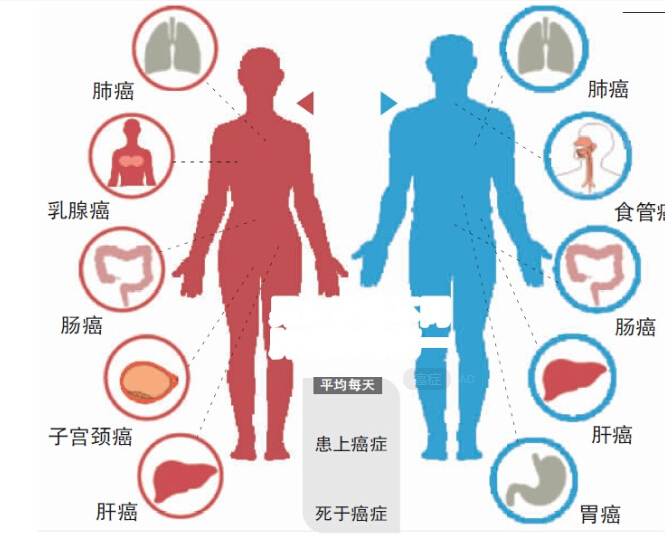一个关键的分子,从而使癌症扩散已经被科学家首次发现,为新的治疗方法铺平了道路。该病是一种依赖于细胞的生长,并在大多数情况下只能成为致命的肿瘤一旦发生转移,或从他们的第一个位置扩散到身体的其他部位。今天,费城托马斯.的研究人员透露,他们已经发现了一种单分子似乎在前列腺癌转移的关键驱动。

他们希望他们的发现将使他们的目标,这可以防止前列腺癌肿瘤扩散的药物的发展。和他们的愿望还没有结束。该小组希望它最终将为治疗目标的其他形式的疾病的方法。
在大学泌尿学教授,说:“找到一个方法来阻止或防止癌症转移,已被证明是难以捉摸的。“我们发现一种叫做DNA-PKcs分子可以给我们敲除的主要途径,控制转移之前就开始的一种手段。” 转移是癌症的最后阶段。 肿瘤经过一系列的DNA突变,使细胞更移动允许他们进入血流的变化。
这些细胞也成为'粘',这帮助他们锚定到新的地点,如骨,肺,肝和脑。 这个发生的过程是复杂的,涉及到许多不同的生物途径,但新的研究表明,一个分子存在于许多人的根。 分子是DNA修复蛋白激酶,叫做DNA-PKcs。激酶-一种酶重新破碎或突变的DNA链中的癌细胞,作为一种胶的多的DNA碎片,从而保持活着的细胞,通常应该自毁。
过去的研究已经表明,DNA-PKcs在前列腺癌的治疗性的联系,部分是因为它可以修复由放射治疗和其他治疗引起的肿瘤通常是致命的伤害。重要的是,prfoessor Knudsen的工作表明DNA-PKcs的其他癌症的作用,影响深远。该研究小组发现分子也表现为一个网络,将对转移过程的整个计划主调节器。具体来说,DNA-PKcs对另一种酶,使许多癌细胞成为移动的,如细胞迁移和侵袭其他关键流程。此外,Knudsen博士和她的团队发现,在小鼠前列腺癌的人体模型,他们可以通过抑制DNA-PKcs的生产或功能块转移发展代理商。
在小鼠和人侵袭性肿瘤,DNA-PKcs抑制剂,减少肿瘤转移部位的整体负担。
在调查的最后一部分,研究人员分析了232例前列腺癌患者。他们测量了这些细胞中DNA-PKcs的量,比较水平的病人的医疗记录。他们发现了一个在激酶水平穗是一个强大的发展中国家转移前列腺癌的不良预后的预测。
他们发现DNA-PKcs是更积极的人类样本的阉割性前列腺癌,积极的治疗疾病的抵抗形式。 Knudsen博士说:“这些结果有力地表明,DNA-PKcs的通路和信号,导致在前列腺癌转移的发展主调节器,和DNA-PKcs的高水平可以预测早期肿瘤可能会发生转移。 “发现DNA-PKcs是致命的疾病,可能司机是意想不到的,并发现通过关键在学术界和工业界的合作成为可能。” 研究的主要合作伙伴包括密歇根大学,加利福尼亚,洛杉矶和哥伦比亚,梅奥诊所,克利夫兰诊所和基因组 DX。
虽然不是所有的分子都容易变成药物,至少有一家制药公司已经开发出一种能够抑制DNA-PKcs的药物,目前在一个研究阶段的测试它。 “我们对检测DNA-PKcs抑制剂在临床临床评估下一步的热情,Knudsen博士说。
“一个新的审判即将展开使用Celgene cc-115 DNA-PKcs抑制剂。 这项新的试验将病人推进治疗标准,将可在多个中心,在前列腺癌的临床试验联盟相连,我们是其中的一员。“虽然对新药的审批途径可能需要许多年,这个新的试验将提供一些洞察DNA蛋白抑制剂作为抗肿瘤药物的效果。 在平行的,使用这种激酶作为严重疾病的一个标志,也可以帮助确定患者的肿瘤会发展成侵袭性转移性疾病,可以使我们更积极的治疗早期治疗他们。” 结果发现在癌细胞 杂志报道。
原文
Cancer breakthrough as scientists discover 'master switch' that causes the disease to spread, paving the way for new life-saving treatments
A crucial molecule which enables cancer to spread has been identified by scientists for the first time, paving the way for new treatments.
The disease is one which relies on cell growth, and in most cases tumours only become lethal once they metastasise, or spread from their first location to other parts of the body.
Today, researchers at Thomas Jefferson University in Philadelphia revealed they have found a single molecule that appears to be the 'lynchpin' driving metastasis in prostate cancer.
They hope their findings will enable them to target the development of a drug that could prevent cancerous prostate tumours spreading.
And their aspirations do not end there. The team hope it will eventually pave the way for treatments to target other forms of the disease.
Karen Knudsen, professor of urology at the university, said: 'Finding a way to halt or prevent cancer metastasis has proven elusive.'We discovered that a molecule called DNA-PKcs could give us a means of knocking out major pathways that control metastasis before it begins.' Metastasis is thought of as the last stage of cancer. The tumour undergoes a number of changes to its DNA - mutations - that make the cells more mobile allowing them to enter the bloodstream.
he cells also become 'sticky', which helps them anchor into new locations such as the bone, lungs, liver or brain.
The processes by which this happen are complex, involving many different biological pathways - but the new research suggests that just one molecule lies at the root of many of them.
That molecule is a DNA repair kinase, called DNA-PKcs.
The kinase - a type of enzyme - rejoins broken or mutated DNA strands in a cancer cell, acting as a glue to the many broken pieces of DNA, thus keeping alive a cell that should normally self-destruct.
Past studies had shown that DNA-PKcs was linked to treatment resistance in prostate cancer, in part because it would repair the usually lethal damage to tumours caused by radiation therapy and other treatments.Importantly, Prfoessor Knudsen's work showed that DNA-PKcs has other, far-reaching roles in cancer.
The team found the molecule also appears to act as a master regulator of a network that turns on the entire programme of metastatic processes.Specifically, the DNA-PKcs modulates another enzyme, which allows many cancer cells to become mobile, as well as other key processes such as cell migration and invasion.Furthermore, Dr Knudsen and her team were able to show that in mice carrying human models of prostate cancer, they could block the development of metastases by using agents that suppress DNA-PKcs production or function.And in mice with aggressive human tumours, an inhibitor of DNA-PKcs, reduced overall tumour burden in metastatic sites.
In a final part of their investigations, researchers analysed 232 samples from patients with prostate cancer.They measured the amount of DNA-PKcs those cells contained, and compared those levels to the patients' medical records.They discovered a spike in the kinase levels was a strong predictor of developing metastases and poor outcomes in prostate cancer.
And they showed that DNA-PKcs was much more active in human samples of castrate-resistant prostate cancer, an aggressive and treatment-resistant form of the disease.
Dr Knudsen said: 'These results strongly suggest that DNA-PKcs is a master regulator of the pathways and signals that lead to the development of metastases in prostate cancer, and that high levels of DNA-PKcs could predict which early stage tumours may go on to metastasize.
'The finding that DNA-PKcs is a likely driver of lethal disease states was unexpected, and the discovery was made possible by key collaborations across academia and industry.'
Key partners on the study included the universities of Michigan, California Los Angeles and Columbia, the Mayo Clinic, Cleveland Clinic and Genome Dx.
Although not all molecules are easy to turn into drugs, at least one pharmaceutical company has already developed a drug that inhibits DNA-PKcs, and is currently testing it in a phase one study.
'We are enthusiastic about the next step of clinical assessment for testing DNA-PKcs inhibitors in the clinic,' said Dr Knudsen.
'A new trial will commence shortly using the Celgene CC-115 DNA-PKcs inhibitor.
'This new trial will be for patients advancing on standard of care therapies, and will be available at multiple centres connected through the Prostate Cancer Clinical Trials Consortium, of which we are a member.
'Although the pathway to drug approval can take many years, this new trial will provide some insight into the effect of DNAP-PKcs inhibitors as anti-tumour agents.
'In parallel, using this kinase as a marker of severe disease may also help identify patients whose tumors will develop into aggressive metastatic disease, so that we can treat them with more aggressive therapy earlier.'
The findings are reported in the journal Cancer Cell.



